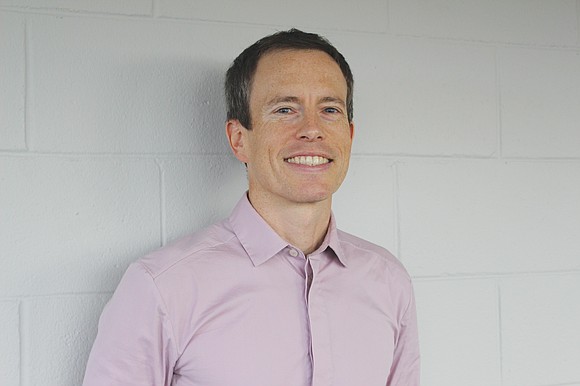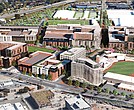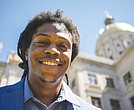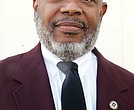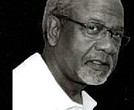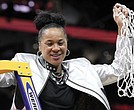Personality: Dr. Peter Henry
Spotlight on board president of Opportunity Alliance Re-entry
9/27/2018, 6 a.m.
People are not born with the desire to be incarcerated or to be on the wrong side of the justice system. In many cases, a person’s circumstances puts them there.
But with thousands of people incarcerated each year in Virginia alone, most will need help when they eventually are released.
That’s where OAR of Richmond comes in. Since 1971, the organization has helped thousands of incarcerated people, providing re-entry services to people in jail and help with housing, jobs, transportation and support when they are released.
“About 90 percent of people incarcerated are going to be released and will come back to society one way or the other,” says Dr. Peter Henry, president of OAR of Richmond’s board of directors. “Our choice as a culture is to have a way to re-enter successfully or are we going to let that be chaotic and haphazard.”
In 2015, OAR’s original name was changed from Offender Aid and Restoration to Opportunity Alliance Re-entry.
“That shift speaks to the fundamental mission of OAR — affirming the dignity and humanity of those impacted by incarceration and helping them assemble the tools for successful re-entry by working with allies in the broader community,” Dr. Henry says.
Dr. Henry became involved in OAR around the time former President Obama took office in January 2009.
Prior to his inauguration, the president-elect issued a call to service on Dr. Martin Luther King Jr. Day.
“That struck me very deeply and was pretty powerful,” Dr. Henry recalls.
Around the same time, he became “aware of the challenges faced by those citizens impacted by incarceration and re-entry” through the “Long Walk to Freedom” event organized by Boaz & Ruth in Richmond.
“It really made me think about how incredibly sheltered and protected my life had been and how privileged I was,” Dr. Henry reflects.
The events nudged him to swing by OAR and see about volunteering. That simple action has evolved into his unyielding dedication to OAR’s mission and service.
He has volunteered with OAR in a variety of capacities, including as a support group facilitator, with résumé workshops and mock interviews and OAR’s Ride-to-Re-entry program. Through Ride-to-Re-entry, OAR clients learn bike maintenance and about the laws related to riding a bike in Virginia. When they complete the class, they are given a bike, helmet, lights and lock “as a form of sustainable transportation,” Dr. Henry says, to get to jobs, school and other vital places.
He says jobs are not the end all, be all for people leaving jail or prison.
“The first thing — and most important thing — is to help formerly incarcerated people understand themselves by helping them become involved in pro social activities and building relationships with them,” Dr. Henry says.
He says he learned a lot when he facilitated “Focus,” a support group conducted every Thursday morning from 2009 until 2017. The group talked about different issues each week, ranging from housing, transportation, family relationships, dying parents or those who died while the person was incarcerated, building romantic relationships and contributing to society.
“Since I was never incarcerated, I didn’t know what they had to deal with and it seemed false for me to impose my idea of how to be successful,” Dr. Henry says.
Dr. Henry views his role on the board as an extension of his direct work with OAR clients.
“I joined the board in 2015, but that feels like a very recent, and comparatively minor, development in the face of the more intensive work as a volunteer,” he says. “The one-on-one work with OAR clients has been profoundly impactful in my life.”
As board chair, Dr. Henry’s goal is to support the organization as best he can and to create ways to increase resources and visibility.
“In a perfect world,” he says, “we should be putting ourselves out of business because, in the future, re-entry into society would not be a problem.”
Meet this week’s Personality and advocate for inmates and former inmates, Dr. Peter Henry:
Occupation: Associate professor in Virginia Commonwealth University’s Department of Focused Inquiry. During the summers, I work as a bicycle tour guide.
Date and place of birth: July 9 in Concord, Mass.
Current residence: Rosedale neighborhood on Richmond’s North Side.
Education: Bachelor’s degree, University of Virginia; master’s of fine arts in creative writing, University of Oregon; master’s in English, University of Virginia; and Ph.D. in English, University of Virginia.
Family: Partner Michelle Lelièvre; parents, Molly and Larry Henry; brother, Ross; and sister, Kate.
No. 1 volunteer position: President of the board of directors, Opportunity Alliance Re-entry of Richmond.
OAR provides services to: Adults who are involved with the criminal justice system. We serve the five local jails — Richmond City Justice Center, Henrico County Jail West, Henrico Regional Jail East, Chesterfield County Jail and Pamunkey Regional Jail. We also provide post-release services from our central office located in Scott’s Addition.
No. 1 challenge: It’s a tie between housing, employment and health care access for our clients. With the stigma of incarceration and lack of income, our clients face great barriers to successful re-entry.
How we address it: We continue to be advocates for our clients, creating partnerships with landlords, employers and health care providers. Every day, we work with our clients to help them set goals and to move through the steps to achieve them.
OAR programs include: Three tiers of programming: OAR’s Jail Services include case management, re-entry planning, cognitive behavioral therapy groups, 12-step meetings and referrals. OAR’s Post-release Re-entry Services include the jail services offerings and access to our clothing closet, transportation assistance, computer lab, peer support groups and more. Once clients have completed their required programming, they are eligible to attend Ride to Re-entry.
Why these programs are important: As the leading re-entry service provider in Richmond, we are reminded every day that more than 90 percent of the hundreds of thousands of adults currently incarcerated will return home. OAR’s programs help clients achieve success in all that they do after coming home from jail or prison. Every day we see lives changed and goals met.
We could do more if: There were more funding. We could serve more individuals and provide other innovative programs.
How I start the day: Literally with coffee and some combination of (news periodicals). I have come to realize that local and state matters impact our lives deeply, and it is worth paying attention to them.
If I had more time, I would: Continue to learn other ways of living, speaking and believing — both here in Richmond and very far away. As I age, I realize — maybe too late! — how large the world is and how very limited my lived experiences are.
A quote that I am inspired by: My friend Jim Temple, who spent his career as a social worker, always says, “When one door closes, another door opens ... but human beings sure do seem to love staring at closed doors.”
Kindergarten taught me: How to ride a bike and how to take the bus. And 40-some years later, I remain committed to transit. Bike lanes, sidewalks and bus routes allow mobility — both physical and economic — in our communities and among our fellow citizens. Working with clients at OAR has taught me how important it is for the Richmond metro region to build a richer network of bus routes and bike lanes to connect our clients to their jobs and to their loved ones. The Ride to Re-entry program is one way OAR helps its clients acquire the tools to rebuild. They earn a bicycle, yes, but they also earn the knowledge of how to use it safely and how to maintain it.
Book that influenced me the most: “Independence Day” by Richard Ford.
What I’m reading now: “Being Mortal” by Atul Gawande.
Next goal: To live up to the models set by two of OAR’s standard-bearers — outgoing OAR board president Tom Coates, who has provided an incredible model of stewardship, strength and wisdom, and Barbara Slayden, OAR’s previous executive director, who devoted 23 years of her life to the mission of re-entry. We at OAR are very lucky to be standing on the shoulders of these giants.

